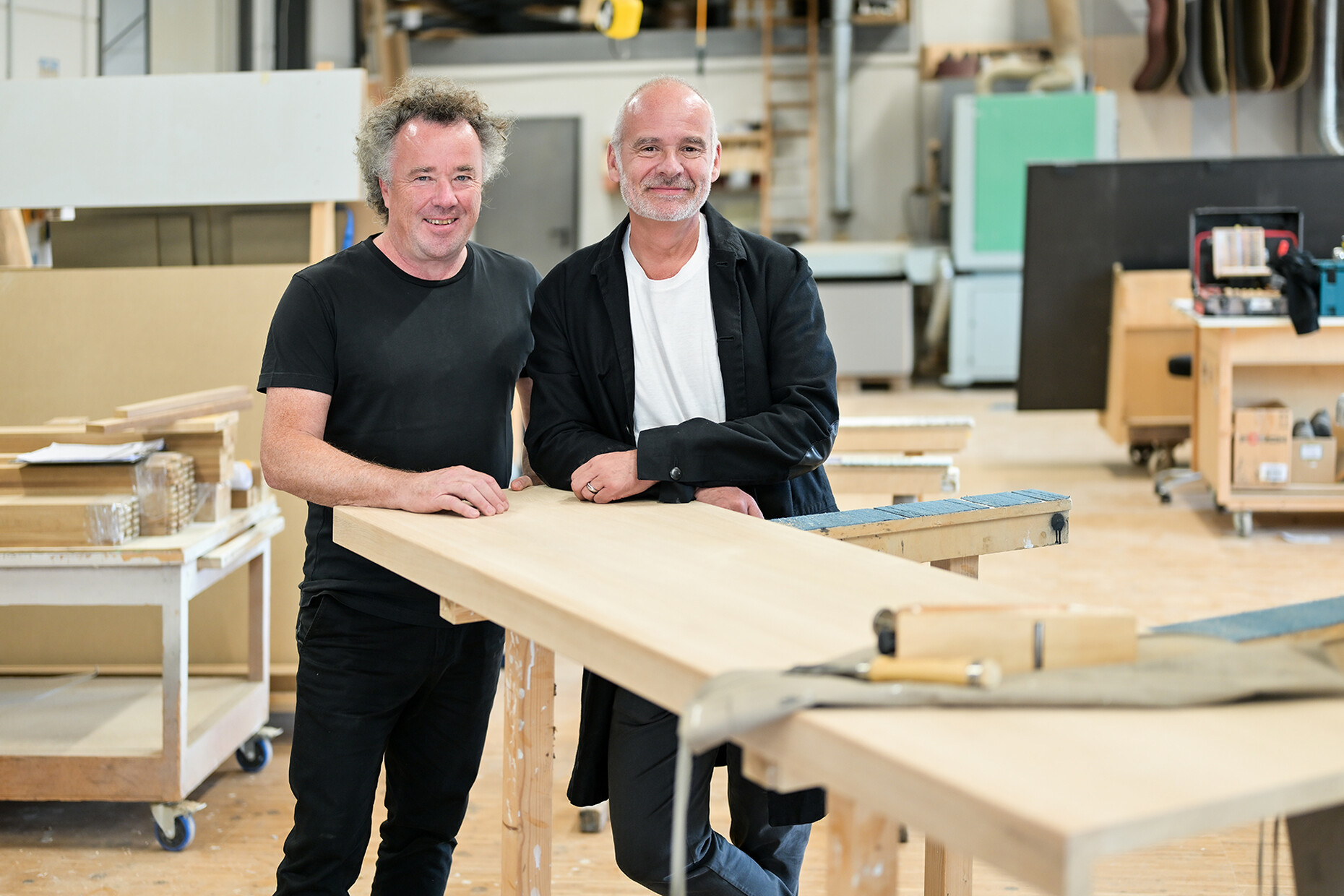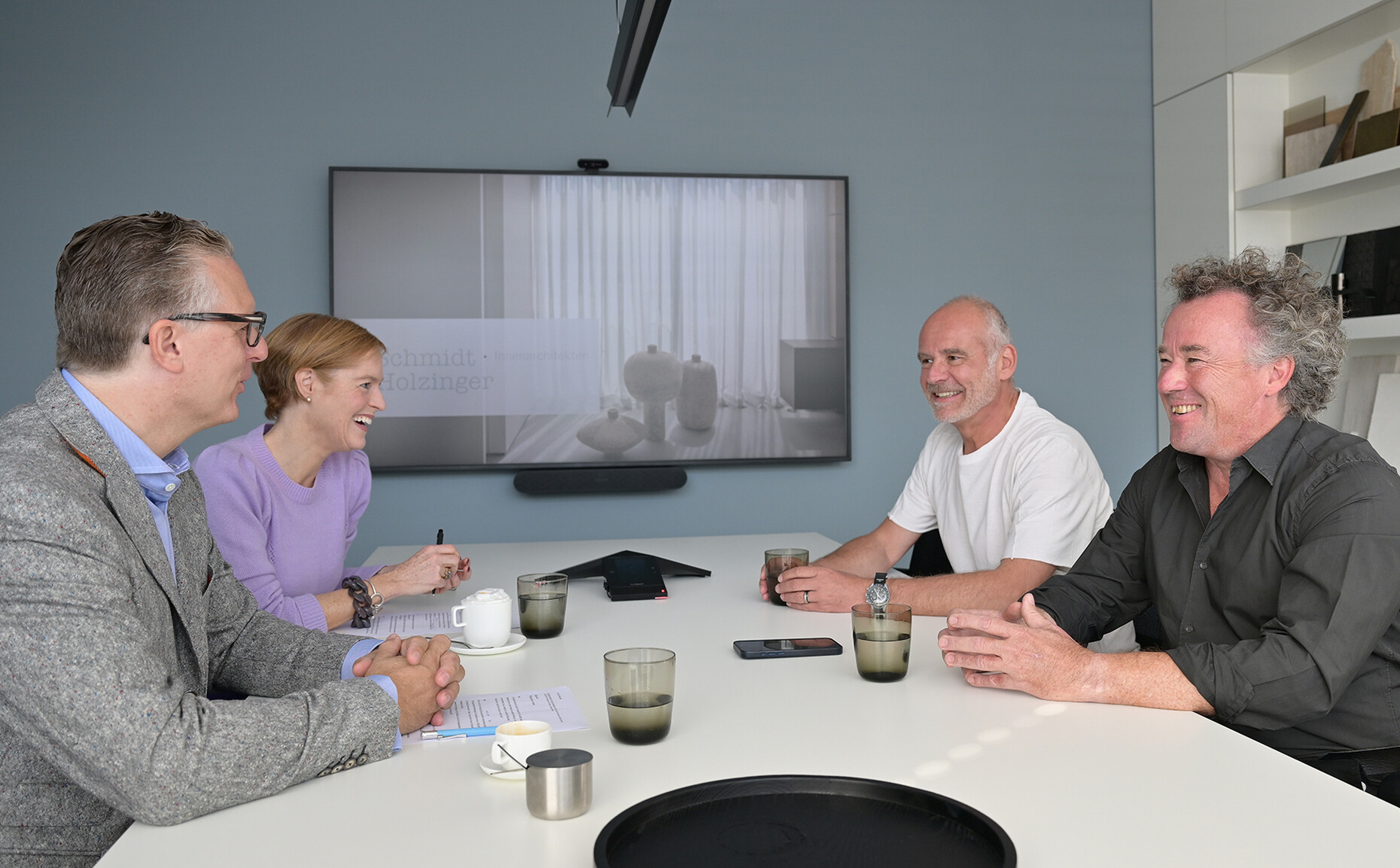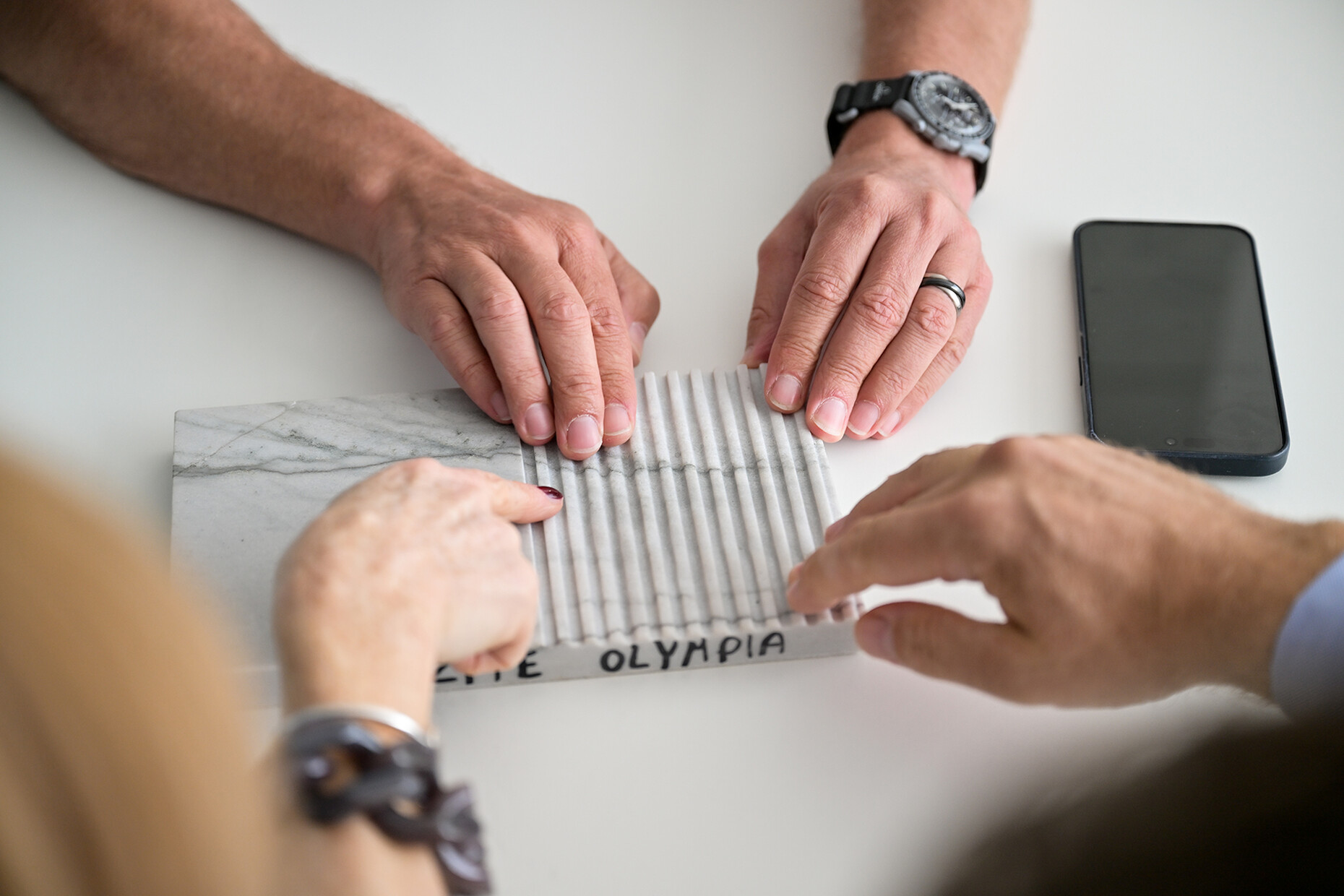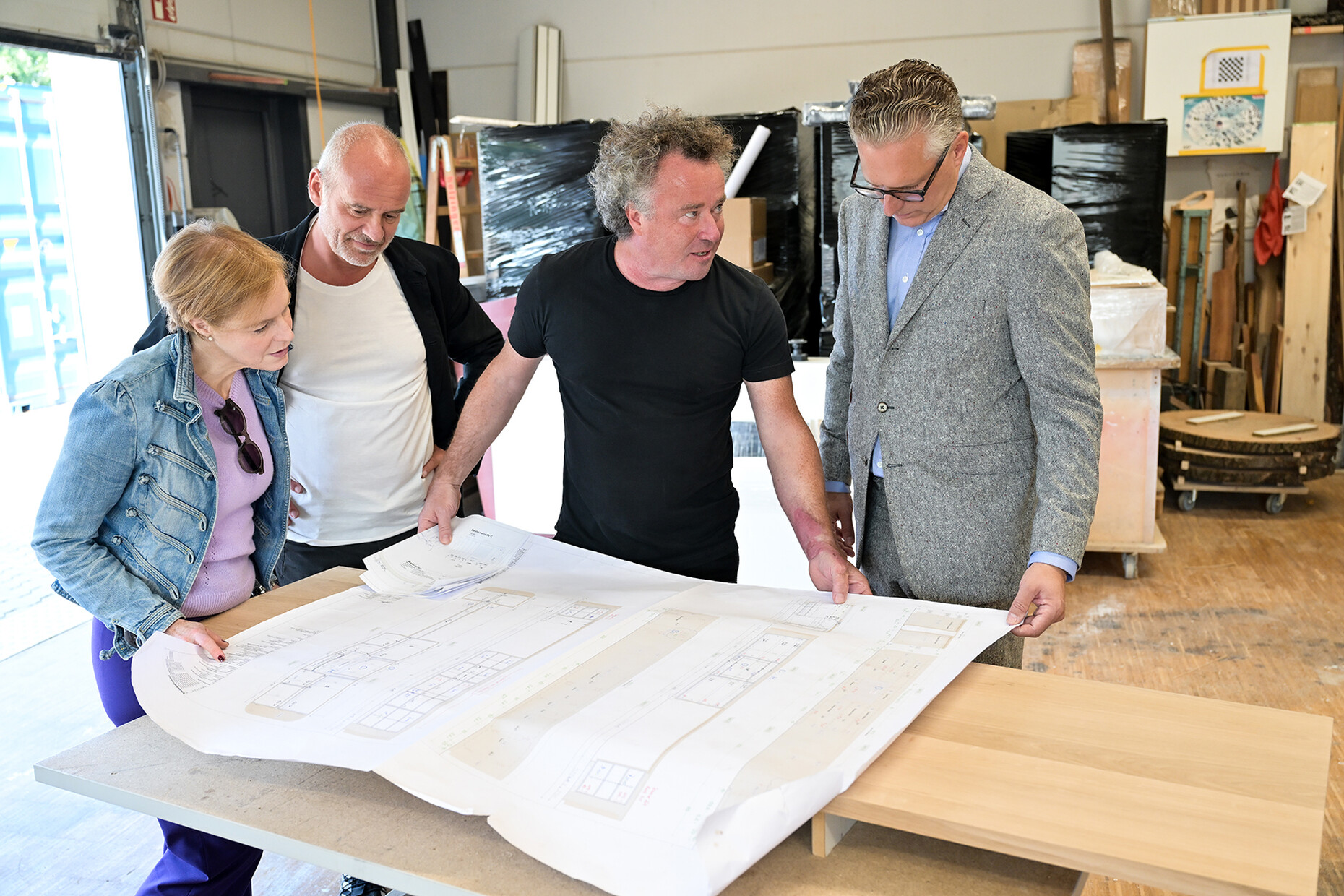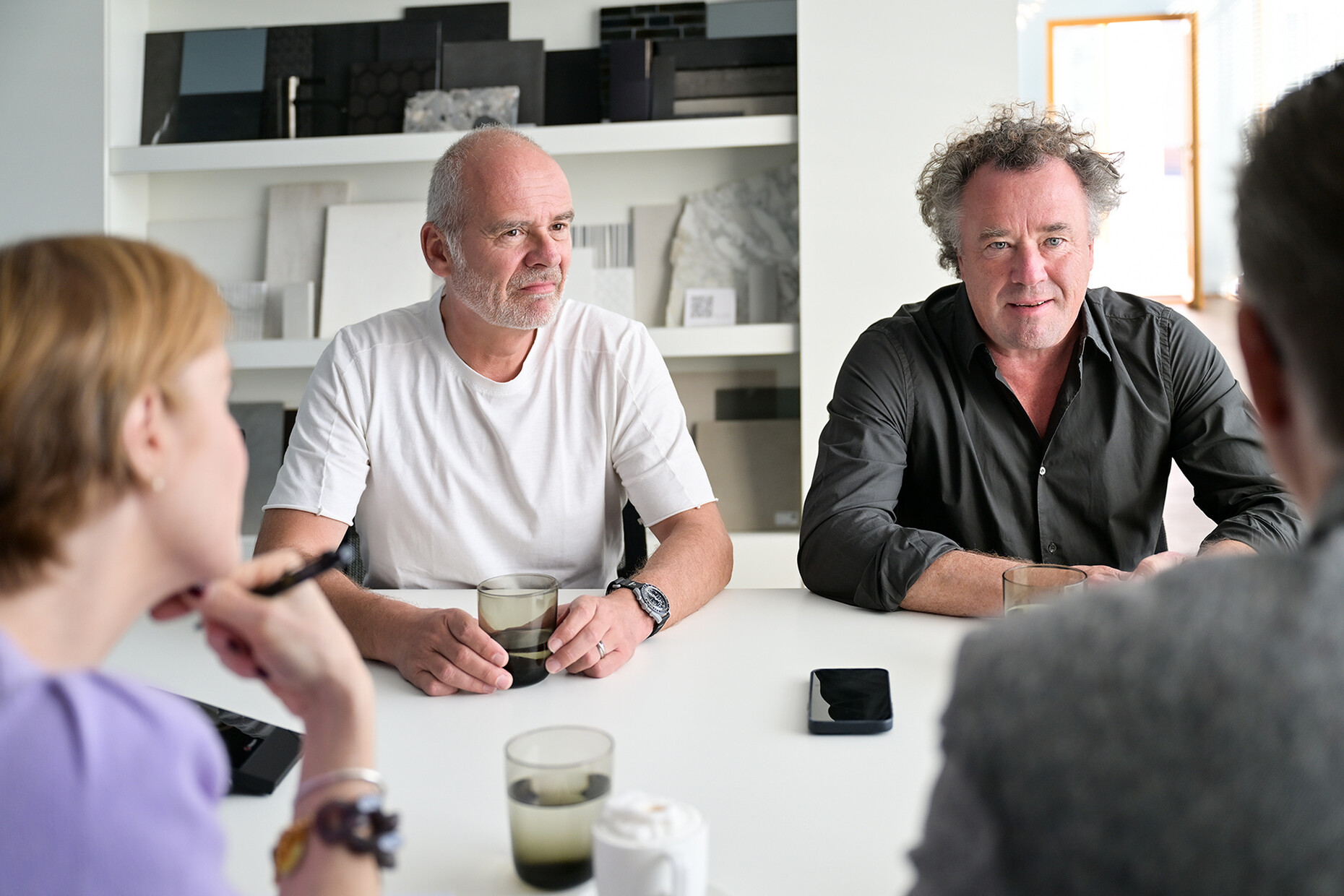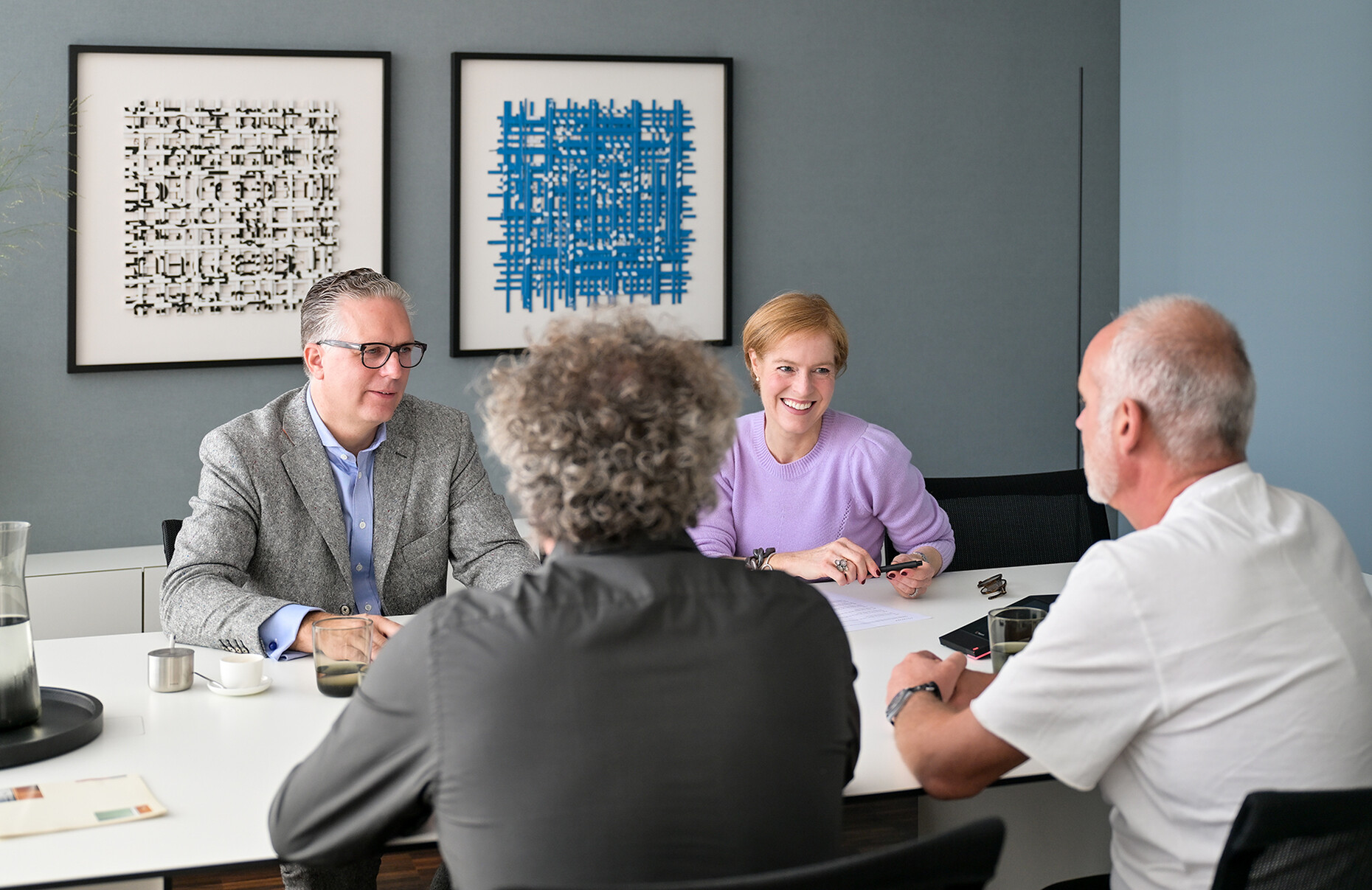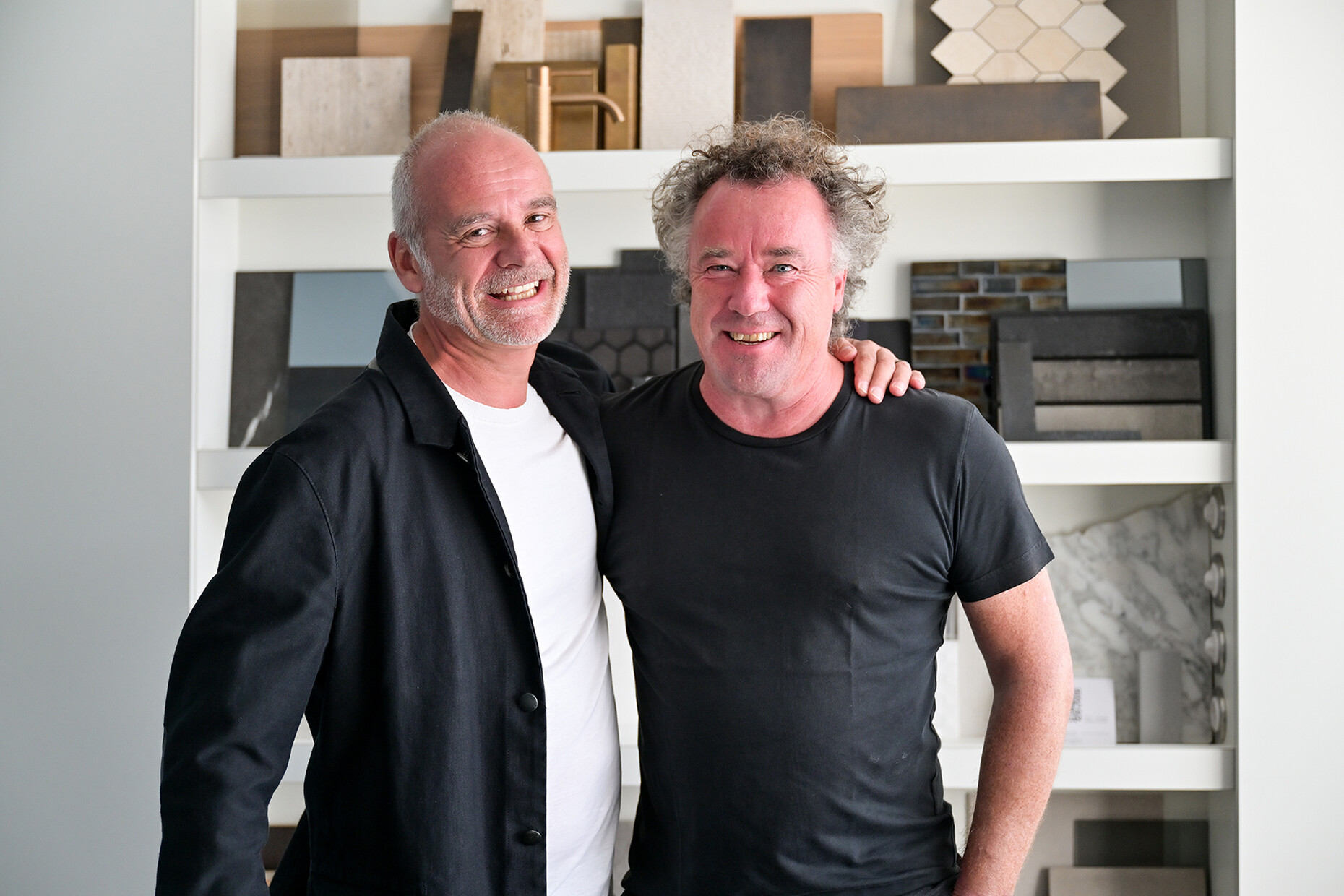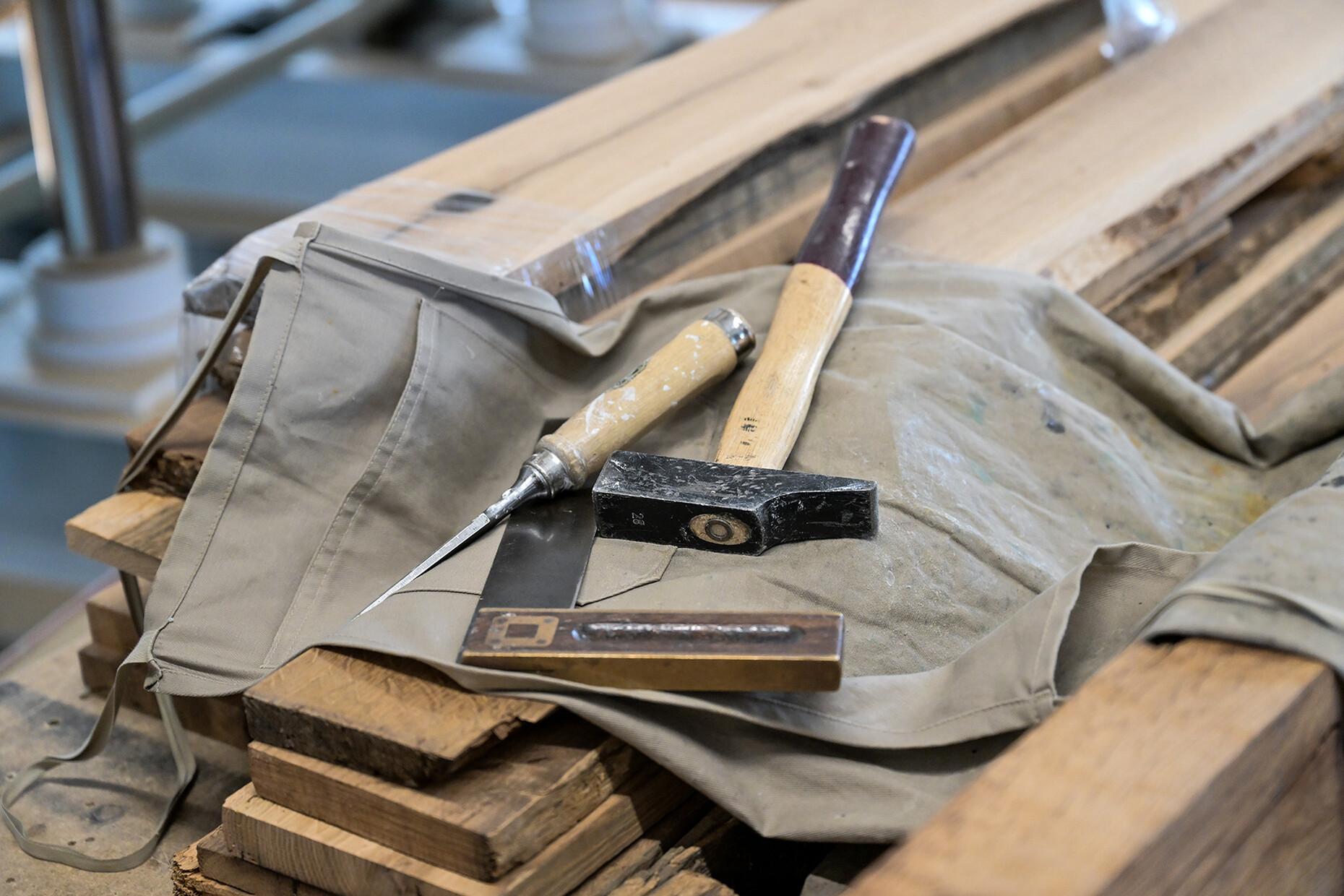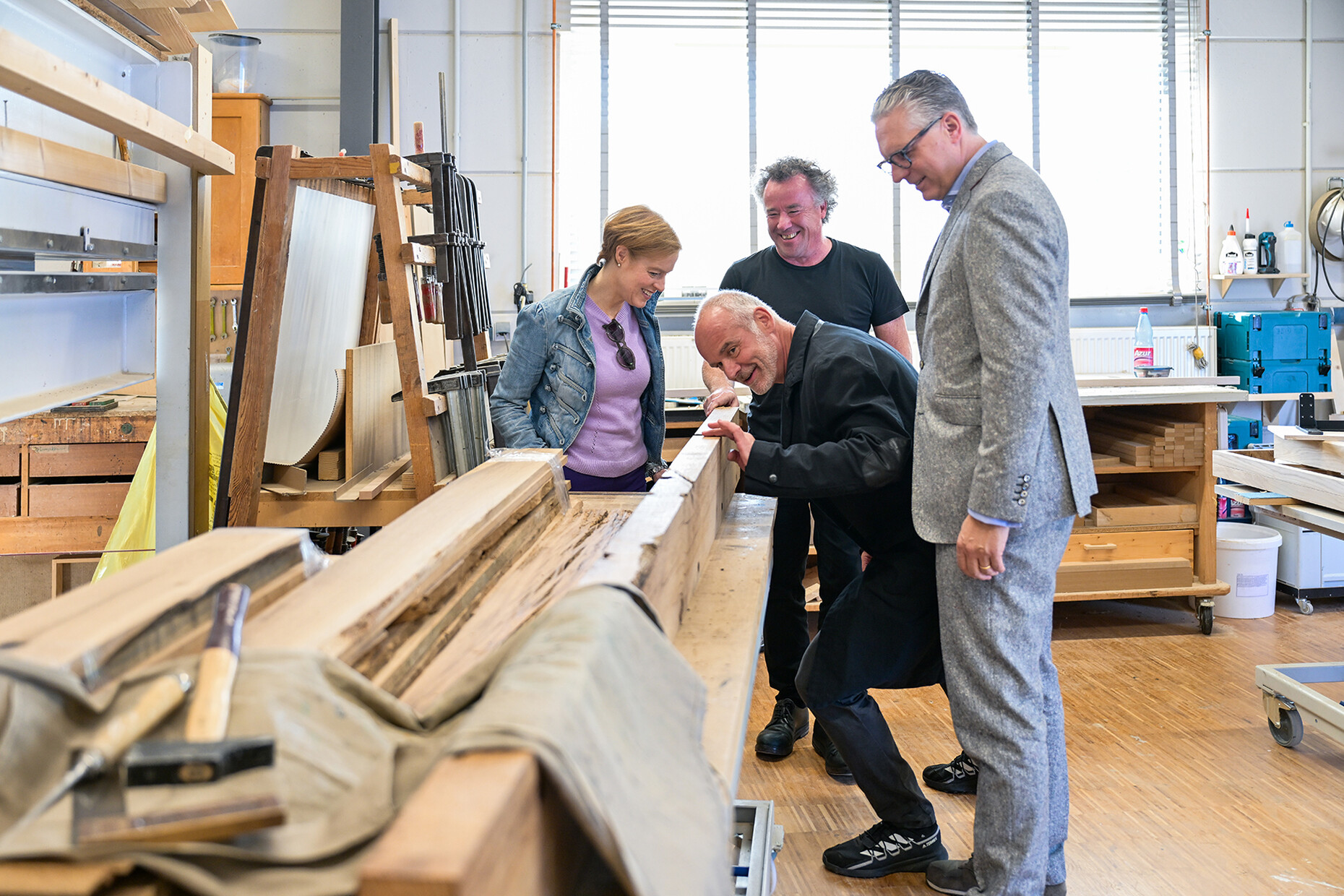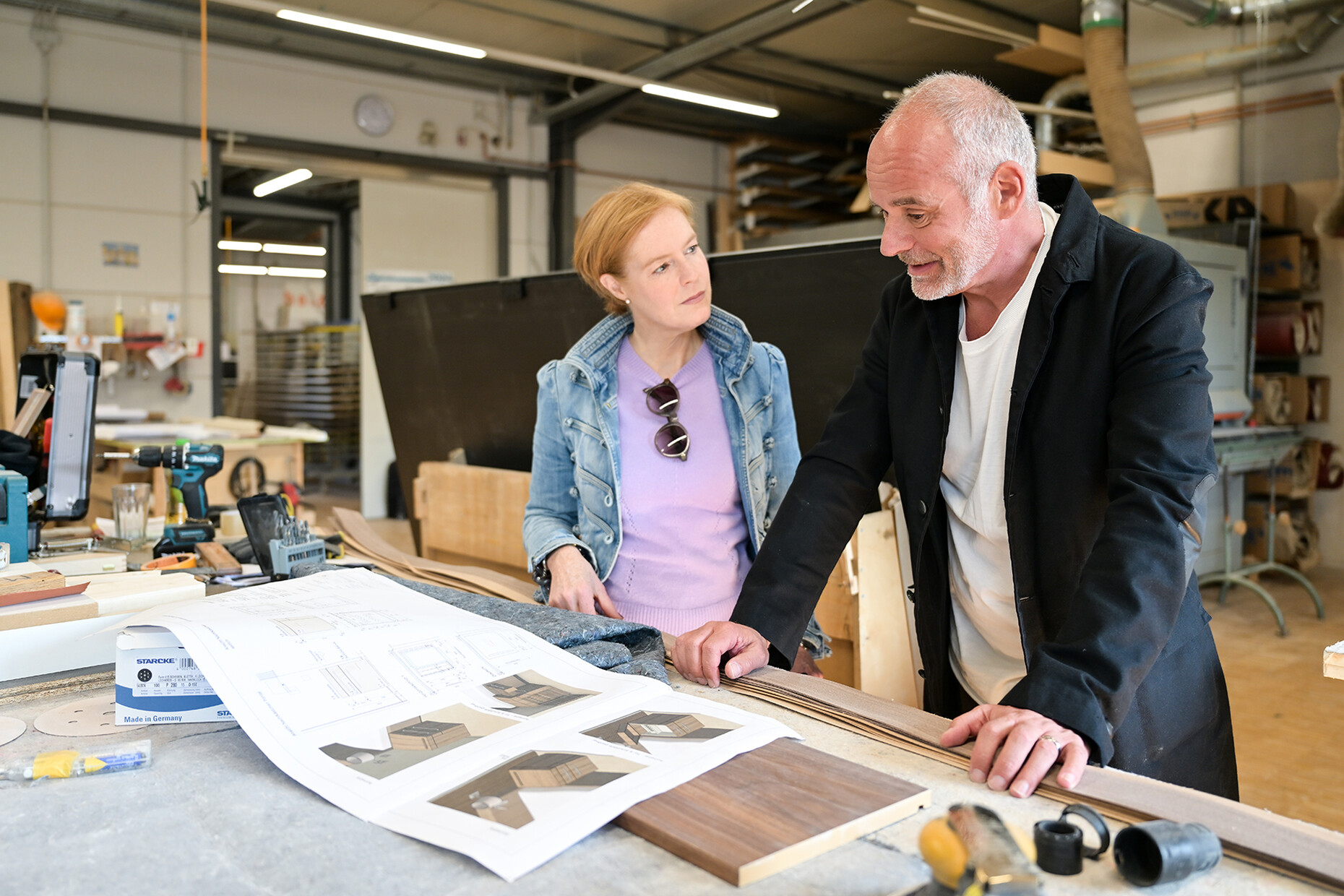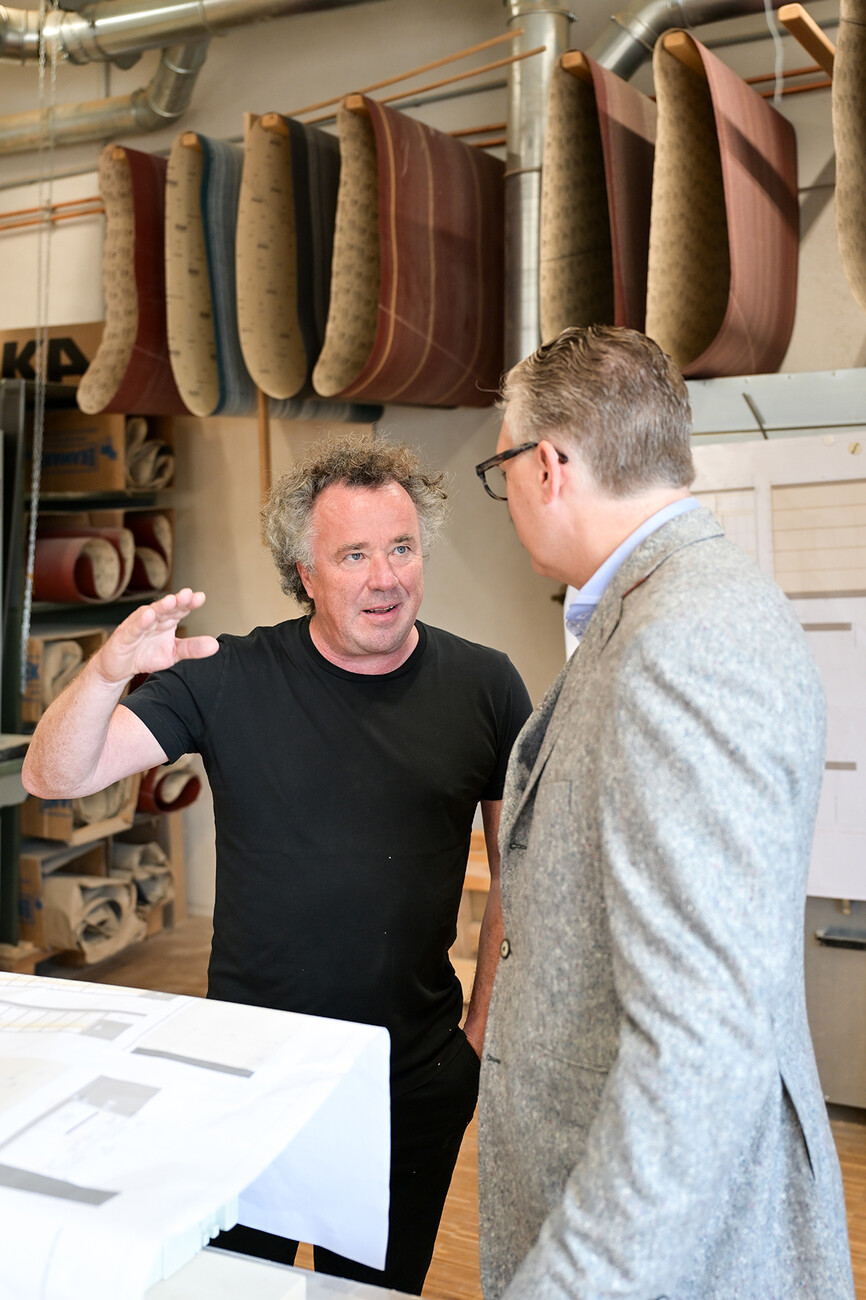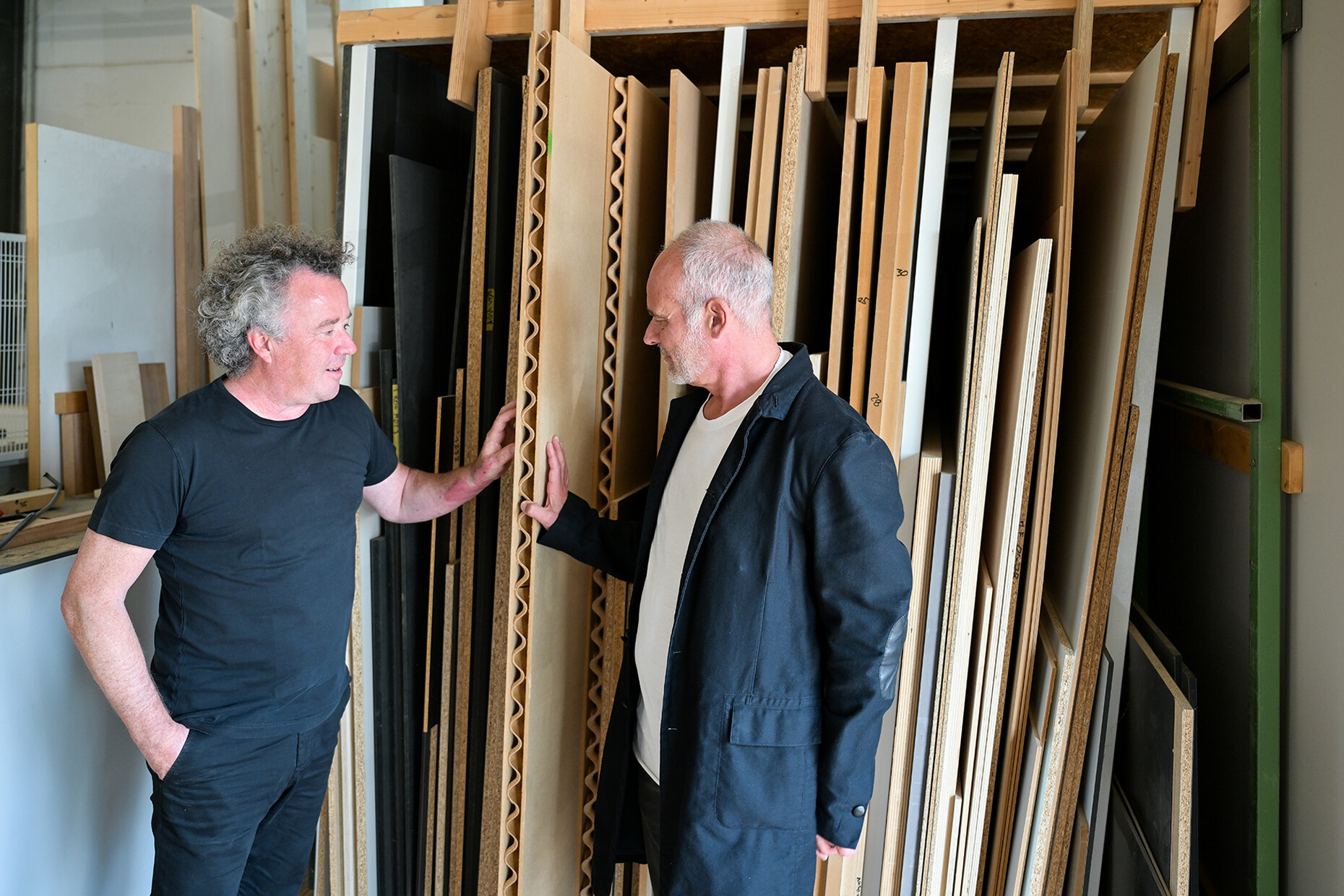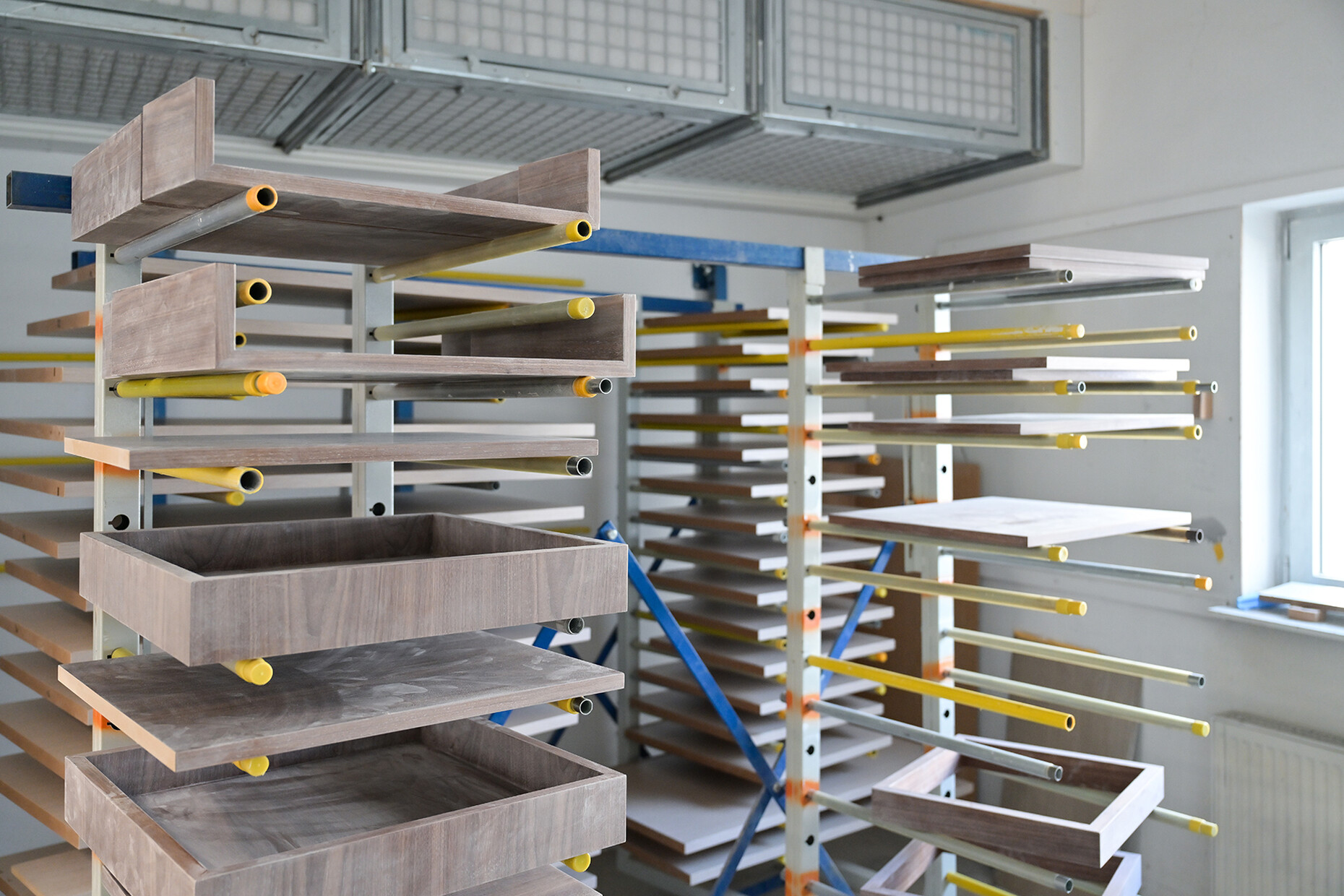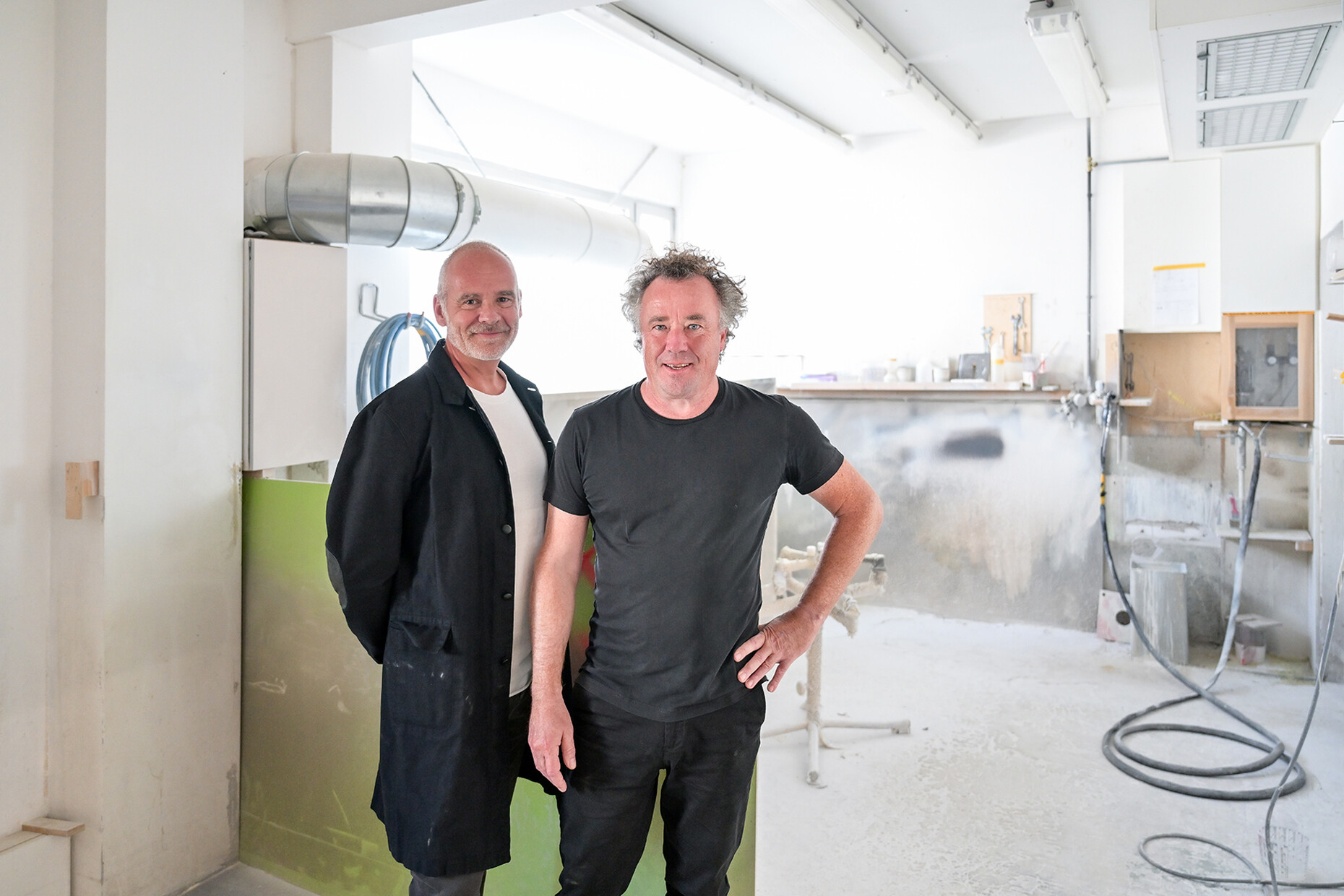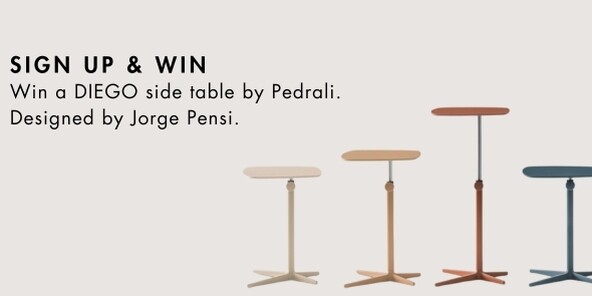Thinking across all trades
Robert Volhard: Schmidt Holzinger Innenarchitekten gibt es seit über 26 Jahren. Sie bieten ein breites Portfolio – von der Planung bis zur Umsetzung in der eigenen Manufaktur. Worauf sind Sie stolz?
Dieter Schmidt: That we have achieved exactly that. I could never have imagined that when we started out with small projects. Today, being able to run an office with permanent employees fills us with great happiness.
Ulrich Holzinger: I am proud that we have been able to maintain our philosophy so consistently. We no longer need to talk about quality and fit-out standards, we take them for granted. We are concerned with design, work processes, detailed solutions, target-orientated and holistic work.
Robert Volhard: And that comes at a price?
Ulrich Holzinger: It doesn't always have to be expensive natural stone. You can also work well with shell limestone or travertine.
Franziska von Schumann: Ulrich, you took over your father's joinery business and kitchen studio a year before you founded your joint company. Dieter, you previously worked in an architecture firm in Frankfurt am Main. What brought you together?
Dieter Schmidt: We got to know each other during our studies, so we both received the same teaching and stylistic influence.
Ulrich Holzinger: After finishing school, I started a carpentry apprenticeship and realised that this profession alone was not the right one for me. When I started studying interior design, I met Jean-Marc da Costa, one of the founders of serien.lighting. He instilled an affinity for design in me and was a kind of mentor in my younger years. I built trade fair stands for serien.lighting and we also had joint projects in shopfitting and for a practice. I was in my fourth semester at the time and this combination of craftsmanship and design was my building construction exercise. One of the first projects Dieter and I worked on was the remodelling of an office building in Gwinnerstrasse in Frankfurt am Main. We grew with these tasks. It became clear relatively quickly that we would set up our own business after completing our studies.
Dieter Schmidt: Our customers appreciate the fact that our designs are very close to the end result. Thanks to the joinery, we already know what can be realised at the planning stage. What's more, we oversee the realisation of the furniture construction ourselves, from the first brushstroke to delivery. Ulrich often says: ‘We can do it, I don't know how yet, but we can do it.’ And then we tinker around until we've done it.
Franziska von Schumann: Where does this courage come from?
Ulrich Holzinger: I wouldn't call it courage. More like optimism. That was a typical character trait of my father.
Robert Volhard: What is your approach to new projects?
Ulrich Holzinger: The first step is to listen to the customers and find out what kind of atmosphere they would like to live in. If they find it difficult to put their wishes into words, we ask them to put together a mood board, either digitally or using photographs from magazines. This is usually still unsorted and we then bring a certain structure to the idea. We check what is structurally feasible, divide the task between the two of us and discuss the project as a team. Depending on the service phase, we are involved to varying degrees. We don't build furniture. We build rooms. We contribute our knowledge of natural stone processing, plastering techniques, painting and lighting design. In short: we think across all trades.
Dieter Schmidt: Today, the home is also more of a place of retreat than something that should represent something. In order to plan the rooms accordingly, we therefore need to understand the rhythm of our customers' lives. We are interior designers in the traditional sense, but thanks to our in-house joinery workshop, we can manage the realisation in a targeted manner and offer holistic solutions. Over the years, we have built up a network of craftsmen with whom we enjoy working and for whom we are happy to make recommendations.
Franziska von Schumann: In addition to the private residential projects, you also design commercial premises, don't you?
Dieter Schmidt: Yes, but in comparison to a much lower percentage.
Ulrich Holzinger: That's how it turned out, but we would definitely like to realise more projects in the contract sector.
Franziska von Schumann: Would designing hotels be exciting for you?
Dieter Schmidt: That would certainly be exciting, like designing an interior for a boutique hotel.
Franziska von Schumann: Do you also turn down orders?
Dieter Schmidt: Yes, absolutely. Good material quality and maintaining our design philosophy are important to us, for example. It's also about good cooperation. If someone sees us purely as a service provider that can be directed, we don't feel comfortable.
Robert Volhard: Where are your projects located on the map?
Dieter Schmidt: The majority of our projects are located in the Rhine-Main region, but we have also realised projects internationally, be it in Mallorca, southern France, Switzerland or London and Vienna.
Franziska von Schumann: How much does the topic of sustainability influence your work?
Dieter Schmidt: We have always focussed on high-quality materials and their high-quality processing. We also prefer to work with European woods and try to avoid long transport routes. Although we pick up on trends in our designs, we do not submit to any fashion. If possible, we want our customers to enjoy our interior design for the rest of their lives.
Robert Volhard: You have been working together for 26 years and are business partners as well as friends. What is your secret?
Dieter Schmidt: We even live in a house where there are only our two residential units. I would say the secret is mutual respect, appreciation, tolerance and generosity. And human affection in general.
